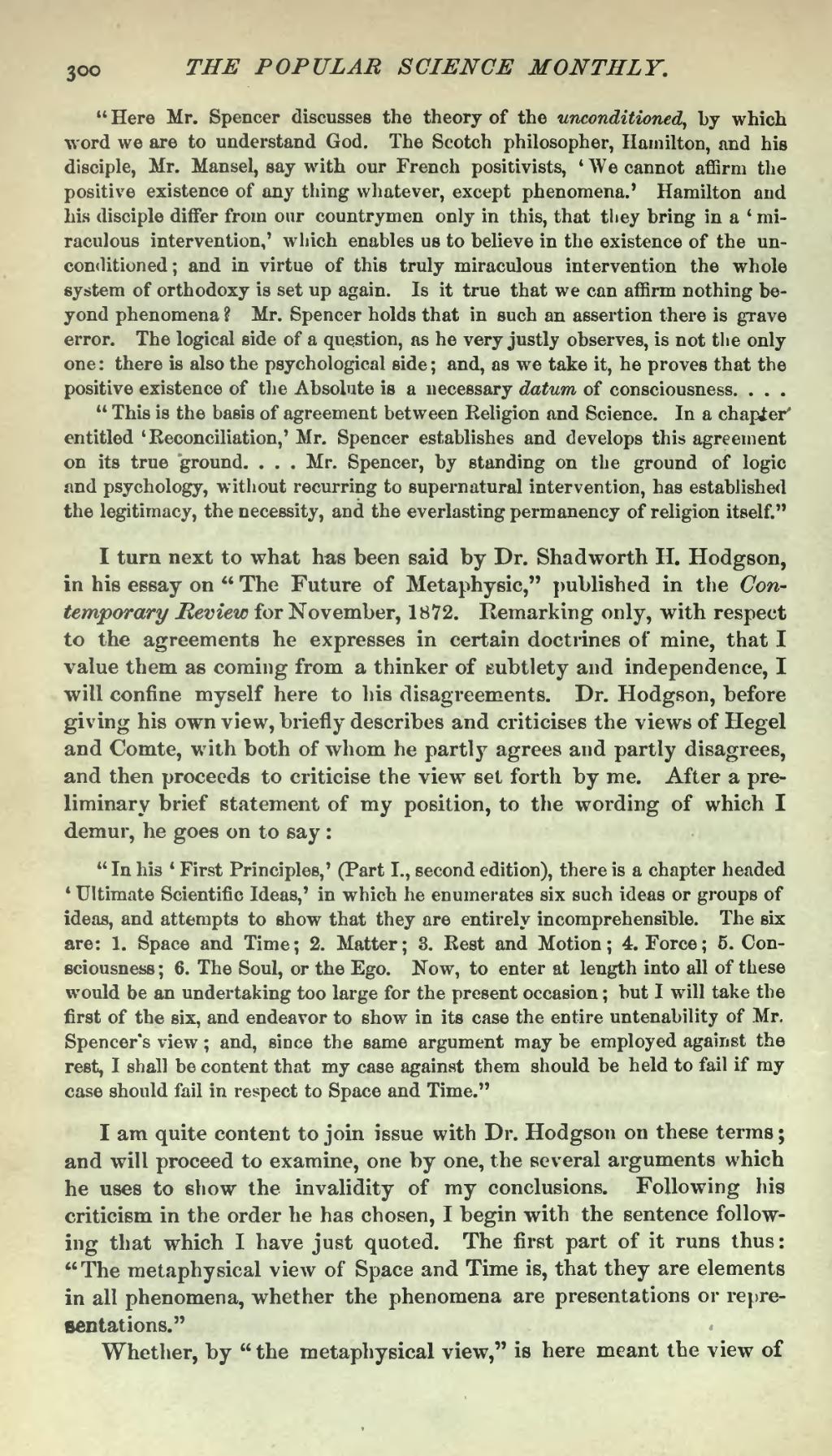"Here Mr. Spencer discusses the theory of the unconditioned, by which word we are to understand God. The Scotch philosopher, Hamilton, and his disciple, Mr. Mansel, say with our French positivists, 'We cannot affirm the positive existence of any thing whatever, except phenomena.' Hamilton and his disciple differ from our countrymen only in this, that they bring in a 'miraculous intervention,' which enables us to believe in the existence of the unconditioned; and in virtue of this truly miraculous intervention the whole system of orthodoxy is set up again. Is it true that we can affirm nothing beyond phenomena? Mr. Spencer holds that in such an assertion there is grave error. The logical side of a question, as he very justly observes, is not the only one: there is also the psychological side; and, as we take it, he proves that the positive existence of the Absolute is a necessary datum of consciousness. . . .
"This is the basis of agreement between Religion and Science. In a chapter entitled 'Reconciliation,' Mr. Spencer establishes and develops this agreement on its true ground.... Mr. Spencer, by standing on the ground of logic and psychology, without recurring to supernatural intervention, has established the legitimacy, the necessity, and the everlasting permanency of religion itself."
I turn next to what has been said by Dr. Shadworth H. Hodgson, in his essay on "The Future of Metaphysic," published in the Contemporary Review for November, 1872. Remarking only, with respect to the agreements he expresses in certain doctrines of mine, that I value them as coming from a thinker of subtlety and independence, I will confine myself here to his disagreements. Dr. Hodgson, before giving his own view, briefly describes and criticises the views of Hegel and Comte, with both of whom he partly agrees and partly disagrees, and then proceeds to criticise the view set forth by me. After a preliminary brief statement of my position, to the wording of which I demur, he goes on to say:
"In his 'First Principles,' (Part L, second edition), there is a chapter headed 'Ultimate Scientific Ideas,' in which he enumerates six such ideas or groups of ideas, and attempts to show that they are entirely incomprehensible. The six are: 1. Space and Time; 2. Matter; 3. Rest and Motion; 4. Force; 5. Consciousness; 6. The Soul, or the Ego. Now, to enter at length into all of these would be an undertaking too large for the present occasion; but I will take the first of the six, and endeavor to show in its case the entire untenability of Mr. Spencer's view; and, since the same argument may be employed against the rest, I shall be content that my case against them should be held to fail if my case should fail in respect to Space and Time."
I am quite content to join issue with Dr. Hodgson on these terms; and will proceed to examine, one by one, the several arguments which he uses to show the invalidity of my conclusions. Following his criticism in the order he has chosen, I begin with the sentence following that which I have just quoted. The first part of it runs thus: "The metaphysical view of Space and Time is, that they are elements in all phenomena, whether the phenomena are presentations or representations."
Whether, by "the metaphysical view," is here meant the view of
